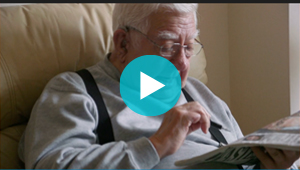Dori Rosenberg, PhD, MPH
Biography
Dori Rosenberg, PhD, MPH, has conducted extensive research into physical activity and sedentary time, with a central focus on older adults and people with chronic conditions, who often face substantial barriers to engaging in physical activity. Dr. Rosenberg has a particular interest in helping to build an evidence base for the health effects of sedentary time, given that the vast majority of people’s waking hours are spent sitting, yet we are only starting to understand how this impacts health.
Dr. Rosenberg’s current and recent studies include:
- The Healthy Aging Resources to Thrive (HART) Trial. HART found that a sitting reduction intervention, I-STAND, improved blood pressure and sitting patterns over 6 months.
- The De Pie y a Movernos Study. Dr. Rosenberg and colleagues are co-designing a sedentary behavior reduction and physical activity promotion intervention to improve brain health for the older Latino/Hispanic community in Southern California and Washington state.
- The accelerometer sub-study of the Adult Changes in Thought cohort study (ACT Study). Dr. Rosenberg and Dr. Sue McCurry at the University of Washington are collecting device-based measures of sitting patterns, physical activity, and sleep as well as circadian rhythms from the ACT cohort. This data will be used to examine how behaviors of the 24-hour activity cycle (sedentary time, physical activity, sleep) are associated with cognition and physical function in older adults.
Dr. Rosenberg has also helped develop and test self-reported measures of sedentary behavior, recognizing that a key step in better understanding these behaviors is having valid self-reported tools available. Dr. Rosenberg helped to validate the widely used Sedentary Behavior Questionnaire, which is a self-reported measure of sedentary time (see below to learn more).
As part of her epidemiologic research, Dr. Rosenberg has interests in investigating ways the built environment — such as parks, open space, and sidewalks — encourage better health, particularly as we age. Further, she examines the ways social and structural determinants of health, including the neighborhood environment, impact cognitive and physical aging in the ACT cohort.
In her intervention research, Dr. Rosenberg is also interested in ways to remotely deliver interventions for promoting physical activity and reducing sedentary time. She helped to conduct a micro-randomized trial of a physical activity intervention after bariatric surgery that used mobile tools and text messages.
Dr. Rosenberg served on a subcommittee of the President's Council on Sports, Fitness, & Nutrition to inform the development of the Physical Activity Guidelines Midcourse Report on older adults in 2022. She is also past co-chair of the Physical Activity Special Interest Group at the Society of Behavioral Medicine and a fellow of the Society of Behavioral Medicine.
Measurement tools
The following tools are available for free download and use.
Sedentary Behavior Questionnaire: This is a self-reported measure of sedentary time, taking into account sedentary behaviors on weekdays and weekends. It has been used widely in research studies across the globe to describe sedentary behavior and track changes in sedentary time.
Walking Route Audit Tool for Seniors (WRATS): WRATS is an audit tool for identifying the best walking routes for older adults. The tool includes 59 items relating to functionality, safety, aesthetics, and destinations, among other domains. Most domains are measured using a 3-point scale. The tool can be used by the general public as well as by researchers.
Surveys on environmental factors affecting youth physical activity and sedentary behavior: Developed for the Active Where? Study, these surveys assess perceived home and neighborhood environments as reported by parents of children, parents of adolescents, and adolescents themselves. The surveys use scales that have acceptable reliability and are associated with physical activity.
Research interests and experience
-
Behavior Change
Physical activity, sedentary behavior, nutrition, lifestyle interventions, technology applications, built environment
-
Aging & Geriatrics
Changes to health behaviors, including sedentary behavior, physical activity, and nutrition; role of built environment; promotion of physical function and mobility; fall prevention; cognitive function; Alzheimer's disease prevention
-
Obesity
Obesity prevention and control, physical activity and nutrition promotion, role of sedentary behaviors, role of built environment, acceptance and mindfulness interventions for weight management, mobile health interventions
-
Chronic Illness Management
Prevention of further disease, declines in function, and disability; self-management; fall prevention
-
Preventive Medicine
Health behavior change, fall prevention, Alzheimer’s disease prevention
-
Mobile Health
Mobile health interventions for weight, physical activity, diet, and sedentary time; accelerometers (e.g., Fitbit, ActiGraph, activPAL) for measurement and intervention
Recent publications
Florez-Acevedo S, Greenwood-Hickman MA, Zhu W, Cook AJ, Delaney K, Green BB, Arterburn DE, McClure JB, Rosenberg DE Exploratory Analysis of Mental Health and Quality of Life Outcomes in a Randomized Controlled Trial to Reduce Sitting Time in Older Adults With Obesity 2025 Nov 12 doi: 10.1123/japa.2024-0387. Epub 2025-11-12. PubMed
Hartman SJ, LaCroix AZ, Sears DD, Natarajan L, Zablocki RW, Chen R, Patterson JS, Dillon L, Sallis JF, Schenk S, Dunstan DW, Owen N, Rosenberg DE Impacts of Reducing Sitting Time or Increasing Sit-to-Stand Transitions on Blood Pressure and Glucose Regulation in Postmenopausal Women: Three-Arm Randomized Controlled Trial 2025 Aug 26;152(8):492-504. doi: 10.1161/CIRCULATIONAHA.124.073385. Epub 2025-07-25. PubMed
Zlatar ZZ, Greenwood-Hickman MA, Lujan LNM, Cooper J, Florez-Acevedo S, Marquez DX, Aceves RG, Vargas AP, Rosenberg DE Feasibility and Cultural Adaptation of a Community-Engaged Physical Activity Intervention for Hispanic Older Adults: Pilot Study 2025 May 27;9:e65489. doi: 10.2196/65489. Epub 2025-05-27. PubMed
Greenwood-Hickman MA, Yarborough L, Shulman L, Arterburn DE, Cooper J, Delaney K, Estrada C, Green BB, Holden E, McClure JB, Romero D, Rosenberg DE Understanding Goal Setting and Behavior Change Mechanics in an Older Adult Sitting Reduction Intervention 2025 May;39(4):627-636. doi: 10.1177/08901171241302137. Epub 2024-11-21. PubMed
Greenwood-Hickman MA, Zhu W, Idu A, Harrington LB, McCurry SM, LaCroix AZ, Shaw PA, Rosenberg DE Associations Between 10-Year Physical Performance and Activities of Daily Living Trajectories and Physical Behaviors in Older Adults 2025 Apr 29;22(5). doi: 10.3390/ijerph22050704. Epub 2025-04-29. PubMed
Research

Frequent standing may boost heart health after menopause
Study suggests taking short standing breaks can improve health even if total sitting time stays the same.
Research

Changing sitting habits shows meaningful impact
A new trial highlights a promising intervention to improve blood pressure in older adults.
Research

Personalized coaching shows promise for delaying memory loss
Trial is the first to test an individualized approach to improve dementia risk factors.
Research

Can where you move impact future weight gain?
A new study finds that moving from low- to high-density neighborhoods might be related to reductions in weight gain.
Mentoring at KPWHRI

2021 mentorship awards go to Elena ‘Noon’ Kuo and Dori Rosenberg
Outstanding mentorship — emphasizing equity and inclusion — was recognized.
KPWHRI in the media
Evidence shows benefits of activity for healthy aging
Inspiring Seattle rowers: ‘boys in the boat,’ and now, women age 70 and up
Seattle Times, April 5, 2024



